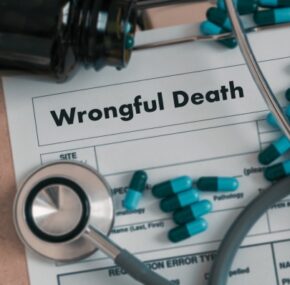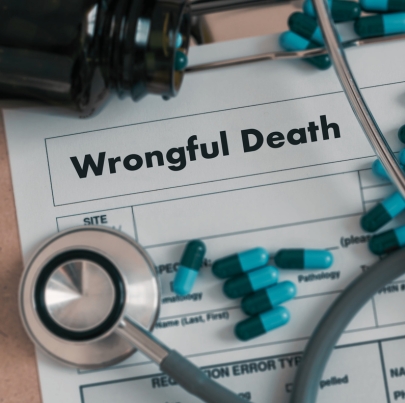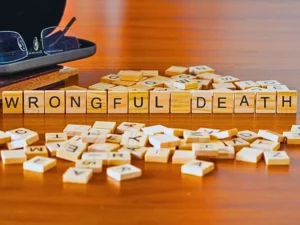Wrongful death lawsuits involving guns often involve multiple at-fault parties. These parties can include the shooter, the gun owner, or the owner of the residential or commercial property where the shooting took place. A lawyer knowledgeable in gun negligence laws can investigate your case to determine the at-fault parties. Your wrongful death lawyer can also assemble evidence to help you prove liability and recover all the damages available in your case.

What Is a Wrongful Death?
A wrongful death occurs when an individual gets killed because of another’s negligence or malicious action. A wrongful death claim is usually possible in situations where the deceased could have initiated a personal injury claim to recover damages had he or she remained alive. A wrongful death claim is a type of personal injury case whereby the injured party is unavailable to file his or her lawsuit on his or her own behalf. Instead, another party must assume the responsibility of bringing a wrongful death lawsuit on the decedent’s behalf.
Who Qualifies to Initiate a Wrongful Death Claim?
In some states, the decedent’s family members qualify to initiate a wrongful death claim. In Illinois, only the personal representative, also known as the executor, of the decedent’s estate can file a wrongful death lawsuit. The court can name a personal representative if the decedent had not appointed one before his or her death. This personal representative is responsible for recovering damages through a wrongful death claim and performing other estate-related functions.
Recoverable Damages in a Wrongful Death Claim
Types of recoverable damages in a wrongful death claim involving gun negligence depend on the facts of the case.
Eligible surviving family members could receive economic and non-economic damages in a successful wrongful death lawsuit. You could recover compensation for financial losses and pain and suffering due to the loss of a loved one because of another party’s negligence or wrongful act.
Types of damages available in a wrongful death case include:
• Medical and Funeral Costs: This can include any medical bills accrued by the decedent before death. It also covers various funeral expenses, including basic service fees, funeral home services, embalming/preparation, cost of the viewing, and ceremony expenses.
• Loss of Financial Support: You might have relied on the decedent for financial assistance. A wrongful death lawsuit allows you to pursue compensation for the loss of income suffered because of your loved one’s unexpected death. You might also recover damages for loss of services if the decedent was a homemaker.
• Loss of Companionship: This category compensates you (the spouse) for losing friendship and quality time with your loved one.
• Loss of a Parent: A child is entitled to compensation for losing a parent’s love, care, and guidance due to another party’s negligence.
• Loss of Inheritance: A wrongful death claim allows you to recover compensation for loss of inheritance that you would have obtained from the decedent.
The court may award punitive damages if it finds that the decedent’s death happened due to gross negligence, willful conduct, or the malicious actions of the defendant. Courts award these damages to punish the liable party and to deter the same or related conduct in the future. If the decedent’s death occurred in the line of duty, such as a fatal police shooting, his or her family may be able to recover workers’ compensation benefits as well.
An injury lawyer experienced with gun negligence laws can help you calculate all the potential recoverable damages in your claim. This calculation might involve obtaining all financial documents related to the decedent’s injury or death. The calculation could also involve consulting economists, medical practitioners, and other professionals.Your wrongful death lawyer can also assess your case to determine if you might be entitled to punitive damages. The lawyer can then prepare a solid case to help you receive compensation for the full extent of your losses due to the wrongful death of your loved one.






